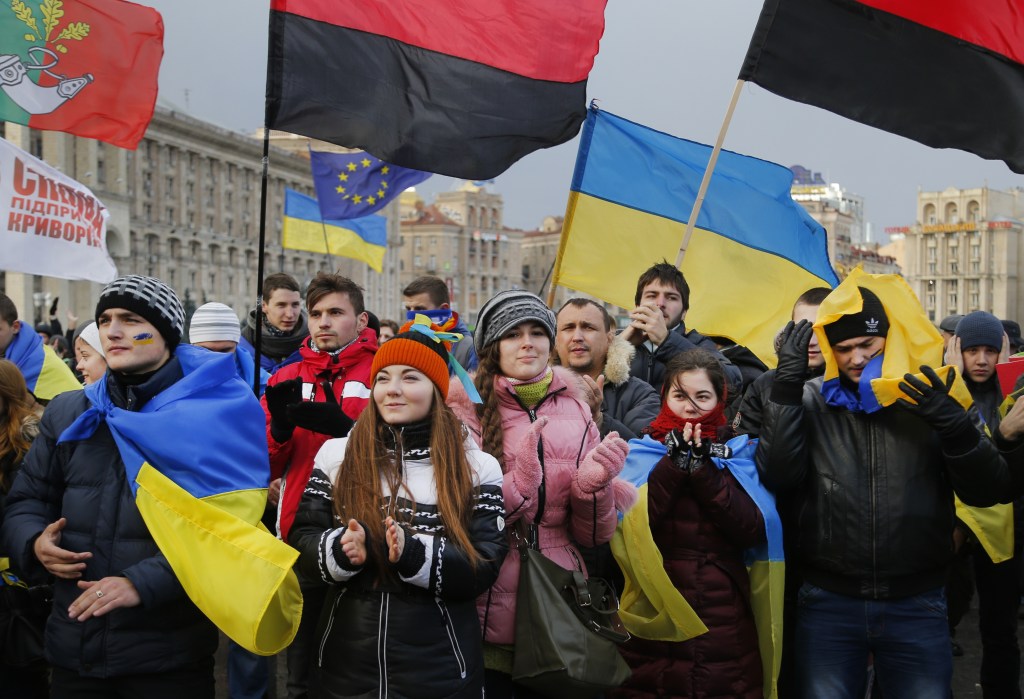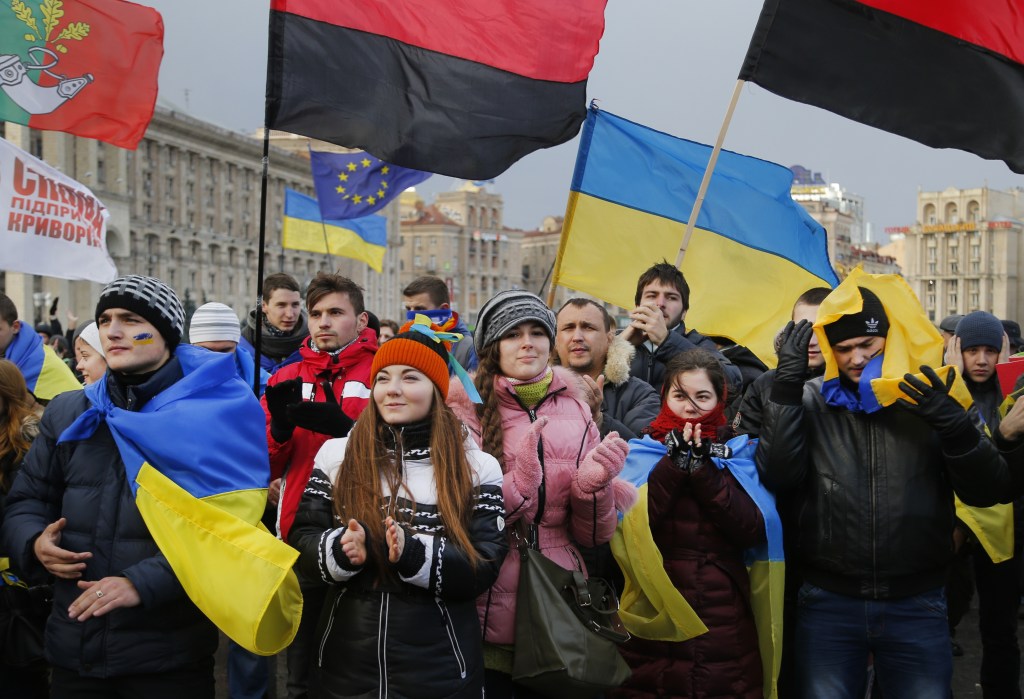VILNIUS, Lithuania — The European Union extended its geopolitical reach eastward on Friday by sealing association agreements with Georgia and Moldova, but blamed Russia for missing out on a landmark deal with Ukraine.
Friday’s summit of government leaders ceremoniously celebrated the closer relations with the two small eastern nations, though the refusal of Ukraine President Viktor Yanukovych to sign up to a similar deal continued to hang heavy over the meeting.
“There was pressure for sure,” French President Francois Hollande said, adding that Ukraine was heavily leaned on, “notably through gas.”
The Kremlin has worked aggressively to derail the EU deal by offering Kiev loans and price discounts and forcing Ukraine to pay its outstanding gas debts. Ukraine has had to suffer through several cold winter spells when Russia tightened the tap during politically sensitive times.
In a video released by the Lithuanian presidency, German Chancellor Angela Merkel told Yanukovych late Thursday that “We expected more.” Yanukvoych replied that “the economic situation in Ukraine is very difficult,” before saying some time later that “I have been one-on-one with Russia for three and a half years under very unequal conditions.”
Even though the negotiations have been painted as a diplomatic battle royal between Brussels and Moscow with a key eastern European nation of 46 million as the ultimate prize, EU foreign affairs chief Catherine Ashton said closer relations would let everyone gain.
An association agreement that streamlines trade rules and principles with those of the EU “is complementary to the relationships they have elsewhere and I think that really matters,” she said.
Even last-minute talks on the sidelines of the summit late Thursday failed to sway Yanukovych, who has faced intense pressure from Russia to keep the former Soviet republic closely aligned with Moscow at the expense of the 28-nation EU.
At the same time, Ukraine complained that the EU hasn’t offered enough to secure a deal.
Hollande said that “the partnership remains open, but it is up to the Ukrainians first to want it.” And he ruled out that Ukraine would be able to count on more EU funds to help offset what it would lose if Moscow turned a cold shoulder toward Kiev.
“We cannot, like the Ukrainian president would like it, insist on such equivalence, namely to insist that we pay Ukraine to get into an association agreement,” Hollande said. “No, we won’t pay.”
Yanukovych shocked the 28-country bloc last week by suddenly freezing the long-negotiated deal days before it was due to be signed, insisting he would seek closer relations with Moscow instead.
While facing pressure from the EU, Yanukovych is grappling with discontent at home. About 10,000 demonstrators in Ukraine’s capital demanded the signing of the EU deal, the latest in daily protests since Yanukovych suspended the signature.
Popular mass protests in 2004, known as the Orange Revolution, overturned Yanukovych’s fraud-marred election victory and brought his pro-Western opponent to power, and he is wary of a repeat of that scenario now.
The protesters have been urging him to sign the EU deal and many have called for the release of jailed former Prime Minister Yulia Tymoshenko.
Send questions/comments to the editors.




Success. Please wait for the page to reload. If the page does not reload within 5 seconds, please refresh the page.
Enter your email and password to access comments.
Hi, to comment on stories you must . This profile is in addition to your subscription and website login.
Already have a commenting profile? .
Invalid username/password.
Please check your email to confirm and complete your registration.
Only subscribers are eligible to post comments. Please subscribe or login first for digital access. Here’s why.
Use the form below to reset your password. When you've submitted your account email, we will send an email with a reset code.